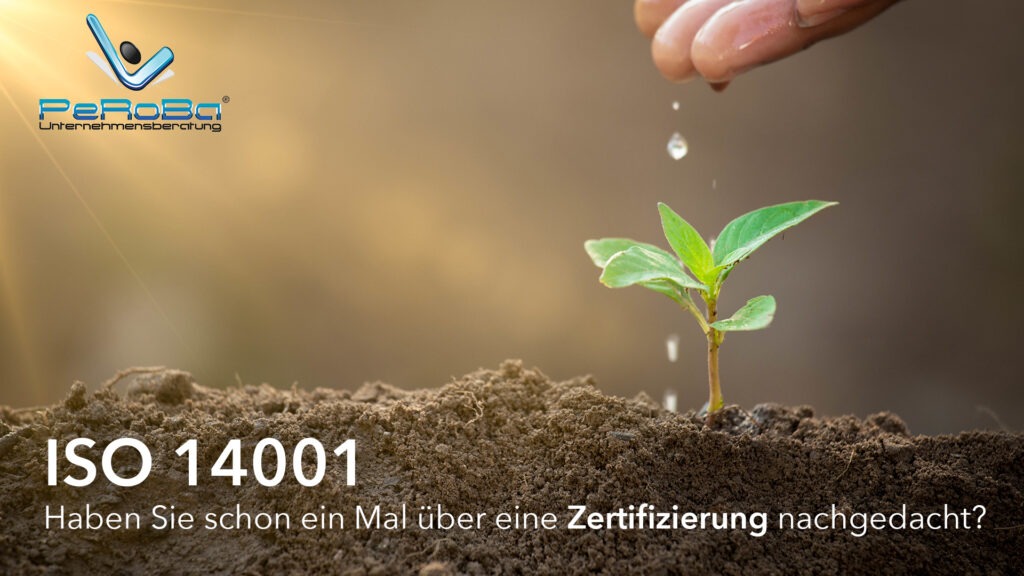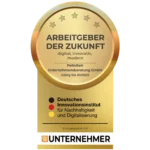Consultations on ISO 14001:2015 for environmental management systems
Simple buzzwords, like sustainability, environmental compatibility and responsibility have been a crucial part of management and advertising languages for more than 2 decades. They sound good and in the main, they will also be well received. However, actually implementing real environmental management in practice within companies might very likely prove more difficult in the main.
Of course, that is due to the large and ever-increasing numbers of laws and regulations on environmental protection but also to people mostly not pursuing an overarching systemic approach. But with ISO 14001 (in its current version, ISO 14001:2015), we have a standard which has mainly been built on proven management tools. Due to its process orientation and its high-level structure, ISO 14001 can also be very well integrated into existing process-oriented standard systems, of course.
Why establishing an environmental management system?
We are no polluters, after all! Of course, in practice, the term “environmental management” covers much more than directly handling pollution of the air, the ground or the water. It is generally about dealing with nature in the context of economic activities in a manner that is as gentle as possible and continually improving. Going easy on resources, reducing emissions, less energy consumption, and making up for used raw materials but also social accountability can be part of environmental management. It becomes evident that environmental management can also pay off in economic terms due to the utilization of fewer wares or less energy. More competitiveness and more means for development and innovation can be freed up this way. And at any rate, sustainability and responsibility can nowadays be turned to account better than ever in terms of marketing. Having an honest and also verifiable environmental management in place constitutes a genuine competitive advantage today.
Identification of environmental aspects
Environmental aspects can be found almost everywhere nowadays. Due to non-stop globalization, there are hardly any processes in development, manufacturing, sales or services which could be perceived on a purely individual basis, meaning irrespectively of other procedures. Of course, in development and manufacturing, direct environmental aspects will become apparent first thing, like, for example, waste, raw materials or energy consumption or traffic and transportation. But less obvious aspects, like the purchase of wares or the investment behavior on the part of an organization often have an impact on nature and environment nowadays, too.
With the aid of suitable tools, specific environmental targets can quite easily be defined based on the environmental aspects that have been identified beforehand. With ISO 14001, goals that have been set will be reached and optimized according to the PDCA method (of planning, doing, checking and acting). Hereby, the “environmental performance” of an organization will be improved on a continual basis. Accordingly, abiding by legal regulations and also reacting faster to change will become easier that way, too.
But it is important to realize as well that of course, ISO 14001 does not impose any absolute guidelines in terms of aims and performance either. It will be possible for similar companies to obtain certifications according to ISO 14001 and to fulfill its requirements and despite that, to perform differently in the environmental department.
Advantages of ISO 14001
Today, sustainability makes for a real competitive edge. Furthering environmental protection and reducing impacts on the environment in a targeted and purposeful manner will prove advantageous when it comes down to economic efficiency and reputation. ISO 14001 is the internationally recognized environmental management standard and it will allow you to use a well-structured approach based on specific environmental targets in order to achieve a definite environmental performance. Risks and sources of errors within the company’s processes that would be at odds with the idea of comprehensive protection of the environment can be identified and done away with more easily, thus. So, legal certainty may be enhanced and liability risks can be reduced on a long-term basis.
ISO 14001 with PeRoBa in Munich
Nowadays, quality and environmental management go together. However, figuring out whether obtaining a specific ISO 14001 certification will be worthwhile is a very individual decision. Feel free to get advice. Based on our long-term experience in the quality and environmental management departments, we will be happy to accompany you in a target-oriented manner on your way to implementing and getting certified all the quality management systems that are relevant to you. The same holds true for ISO 14001. Achieve sustainable success with environmental management.


How may we help you?
If you have any questions dont hesitate contacting us!
You can use our contact form to write us a message, call us or make a free online appointment.



